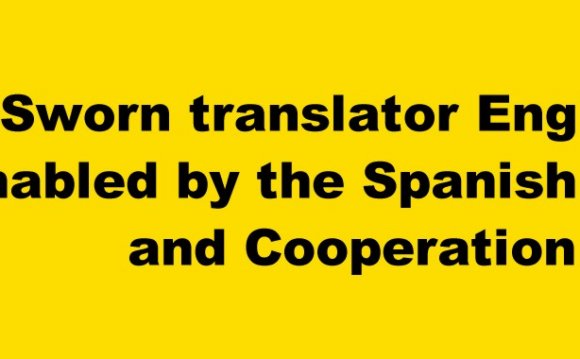
Strictly speaking, it is the translator who is sworn, not the translation. Subject to certain requirements in terms of education and experience, a translator can take an oath before a court of law, whereupon the translations he or she produces are accepted as a full and faithful rendering of the original. The translator must 'certify' the translation by attaching it to the original and adding a formal declaration that he or she believes the translation to be complete and correct. This declaration is then validated by the translator's official stamp. (See example below.)
Note that using a sworn translator is no guarantee of linguistic quality. There are many excellent translators who have never applied to be sworn, simply because the nature of their work does not require it.
It is important to know the following with regard to sworn translations.
The Sworn Interpreters and Translators Act (Wbtv) has been in effect since 1 January 2009. According to the Act, sworn translations may only be provided by translators who have been registered in the register of sworn interpreters and translators (Rbtv). A large number of our translators have been recorded in the above-mentioned quality register, so that sworn translations are provided in accordance with legal requirements.
What sort of documents have to be 'sworn'?
Translations of documents relating to the civil registry (birth certificates, marriage certificates, etc.) will usually require the services of a sworn translator. Other documents that must be 'sworn' include (title) deeds, school certificates, degrees and diplomas, affidavits, witness statements and court rulings.
There are no set requirements for producing a sworn translation, but the translator must ensure that the translated text can be compared and 'verified' against the original. This generally means that the form and layout must remain as close to the original as possible. If there are any features of the text that cannot be translated (such as a seal or signature), the translator will make a note between square brackets: [signature]. Interestingly, there is no legal requirement for the translator to add his or her own stamp, but in practice all sworn translations bear a stamp since omitting it would rather defeat the object of the exercise!
Legalization
 DBF Communicatie can also arrange for a translated document to be 'legalized'. A legalized translation is a sworn translation which is then submitted to the relevant authorities (usually the court at which the translator is registered or a government ministry) to be validated. The authority then confirms the validity of the translator's signature and his or her entitlement to produce a sworn translation.
DBF Communicatie can also arrange for a translated document to be 'legalized'. A legalized translation is a sworn translation which is then submitted to the relevant authorities (usually the court at which the translator is registered or a government ministry) to be validated. The authority then confirms the validity of the translator's signature and his or her entitlement to produce a sworn translation.
MORE TRANSLATION VIDEO












